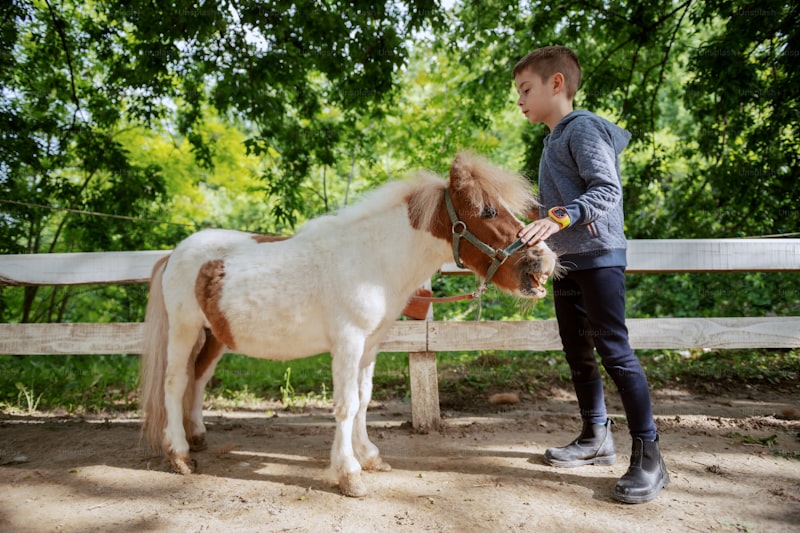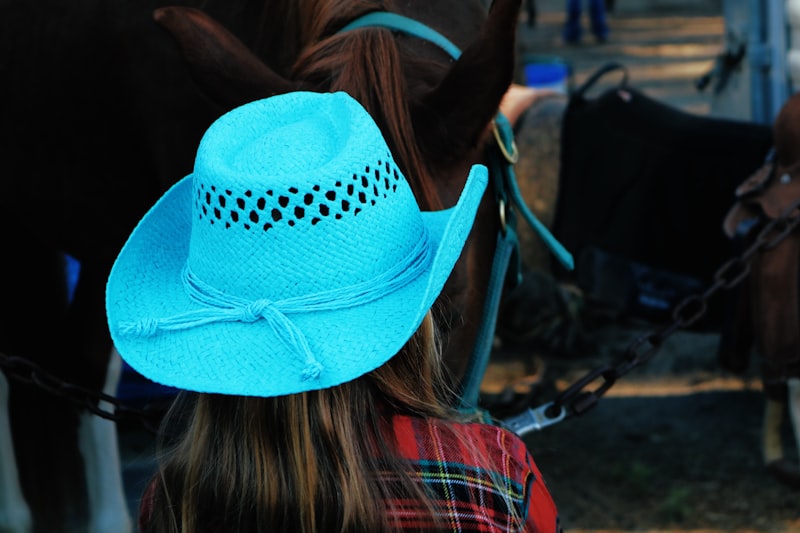Taking care of horses requires a blend of dedication, knowledge, and compassion. Whether you’re a seasoned equestrian or new to the world of horse ownership, understanding the basics of horse care is essential for the well-being of these majestic animals.
Proper nutrition forms the foundation of horse care. Horses are herbivores, and their diet should primarily consist of high-quality hay or pasture grass. Supplementing their diet with grains and specialized feeds tailored to their age, activity level, and health needs ensures they receive essential vitamins and minerals.
Regular grooming isn’t just about keeping a horse clean; it’s crucial for their overall health. Brushing removes dirt and loose hair, prevents skin conditions, and strengthens the bond between horse and owner. Additionally, cleaning hooves daily and scheduling regular farrier visits are vital for maintaining hoof health.
Routine veterinary care is paramount. Vaccinations, dental check-ups, and deworming schedules should be followed diligently. Being proactive in identifying signs of illness or injury such as changes in appetite, behavior, or lameness helps in prompt treatment and recovery.
A comfortable and safe living environment is crucial for horses. Stables should be well-ventilated, clean, and free from hazards. Providing ample turnout time in pastures or paddocks allows horses to exercise and socialize, which is essential for their mental and physical well-being.
Regular exercise is key to maintaining a horse’s fitness and mental stimulation. Exercise routines should be tailored to the horse’s age, breed, and intended use. Balanced training programs that include both groundwork and riding sessions help develop trust and obedience.
Beyond physical care, building a strong bond with your horse is essential. Spending quality time together, understanding their personality, and communicating effectively through cues and body language fosters a deep connection based on trust and mutual respect.
Effective horse care goes beyond providing food and shelter. It involves a holistic approach that considers nutrition, grooming, healthcare, environment, exercise, and emotional bonding. By prioritizing these aspects, you ensure your horse leads a happy, healthy, and fulfilling life.
Mastering Horse Care: Essential Tips for Every Equestrian
First and foremost, maintaining proper nutrition is paramount. Horses are herbivores with sensitive digestive systems, so a diet rich in high-quality hay or grass is essential. Supplement their diet with grain or pelleted feed as needed, ensuring they receive the right balance of nutrients for their age, activity level, and health.
Regular grooming isn’t just about keeping your horse looking good; it’s crucial for their overall health. Brushing removes dirt, distributes natural oils, and allows you to inspect for any injuries or skin issues. It’s also a great bonding time between you and your horse.
Monitoring their health goes beyond grooming. Regular veterinary check-ups, vaccinations, and dental care are vital. Horses are prone to dental problems and regular floating (filing down sharp points on teeth) ensures they can chew their food properly.
Proper shelter is essential for protecting your horse from the elements. Whether it’s a well-ventilated stable or a sheltered paddock, ensure they have a safe and comfortable environment. Adequate turnout time in a pasture is also crucial for their mental and physical well-being.
Understanding horse behavior is key to their care. They communicate through body language and understanding their signals can prevent accidents and strengthen your bond. Spend time observing and learning their habits to anticipate their needs.
Lastly, exercise and mental stimulation are crucial. Regular exercise keeps horses healthy and happy, whether through riding, lunging, or turnout. Mental stimulation, such as toys or varied activities, prevents boredom and behavioral issues.
Mastering horse care isn’t just about following a routine; it’s about building a relationship based on trust and understanding. By prioritizing nutrition, grooming, health care, shelter, behavior, and exercise, you ensure your horse thrives under your care.
From Stable to Saddle: Complete Guide to Horse Care Basics

Taking care of horses involves more than just feeding and grooming. It’s a bond that requires attention to detail and a deep understanding of these majestic animals. Whether you’re a seasoned equestrian or new to the world of horse care, mastering the basics is essential for the well-being of your equine companion.
Feeding and Nutrition: Proper nutrition is the cornerstone of horse care. Horses are herbivores, so their diet should consist mainly of good-quality hay or grass. Supplement their diet with grains or pellets designed for horses, ensuring a balance of proteins, vitamins, and minerals. Always provide fresh water and monitor their intake, especially in hot weather.
Shelter and Environment: A comfortable living environment is crucial. Horses need shelter from the elements, be it a stable or a well-maintained field shelter. Ensure their living space is clean, dry, and safe from hazards. Regularly clean out stables to prevent health issues like respiratory problems.

Grooming and Hygiene: Grooming isn’t just about making your horse look good; it’s essential for their health. Regular brushing removes dirt, distributes natural oils, and allows you to inspect their skin for any abnormalities. Clean hooves daily to prevent infections and apply hoof oil to maintain their condition.
Exercise and Activity: Horses are naturally active animals that need regular exercise to stay healthy. Turnout time in a pasture or daily rides help maintain their physical and mental well-being. Tailor exercise routines based on their age, fitness level, and any specific training goals.
Healthcare and Vet Visits: Regular veterinary check-ups are crucial. Vaccinations, dental care, and deworming schedules should be strictly followed. Monitor your horse’s health closely for signs of illness or injury and address any concerns promptly.
Building Trust and Bonding: Beyond physical care, bonding with your horse is vital. Spend quality time together, whether it’s grooming, training, or simply being present. Understand their body language and respond to their cues to strengthen your relationship.
Mastering these basics ensures your horse lives a healthy, happy life. Whether they’re a companion or a competitor, proper care sets the foundation for a strong partnership.
Top 10 Mistakes New Horse Owners Make and How to Avoid Them
Are you a new horse owner, eager to embark on this exciting journey of horsemanship? While the prospect of owning a horse is thrilling, it comes with its own set of challenges. Avoiding common mistakes can make a significant difference in ensuring a happy and healthy life for both you and your equine companion. Let’s explore the top 10 mistakes new horse owners often make and how you can steer clear of them.
-
Impulse Buying: It’s easy to fall in love with a beautiful horse at first sight, but impulse buying without proper research can lead to mismatched expectations and unsuitable horse care.
-
Neglecting Proper Training: Assuming a horse will naturally adapt to your routine without training can result in behavioral issues and safety concerns. Invest in professional training to establish a strong bond and ensure safety.
-
Poor Nutrition: Incorrect feeding practices, such as overfeeding or underfeeding, can lead to health problems. Consult with a veterinarian or equine nutritionist to create a balanced diet tailored to your horse’s needs.
-
Inadequate Shelter and Space: Horses require sufficient space to roam and shelter from the elements. Lack of adequate facilities can compromise their well-being and comfort.
-
Ignoring Regular Veterinary Care: Regular check-ups, vaccinations, dental care, and deworming are essential for maintaining your horse’s health. Neglecting these can lead to preventable health issues.
-
Improper Hoof Care: Neglecting proper hoof care, including trimming and regular checks for signs of injury or infection, can lead to lameness and discomfort for your horse.
-
Skipping Safety Precautions: Handling horses can be unpredictable. Always wear appropriate safety gear, such as helmets and sturdy boots, to protect yourself from accidents.
-
Overlooking Socialization: Horses are social animals and benefit from companionship. Lack of socialization can lead to loneliness and behavioral problems.
-
Misjudging Time and Financial Commitment: Owning a horse requires a significant investment of time and money. Be prepared for ongoing expenses such as feed, bedding, veterinary care, and facility maintenance.
-
Neglecting Education: Continuous learning about horse care, training techniques, and equine behavior is crucial for becoming a responsible horse owner. Attend workshops, read books, and seek advice from experienced equestrians.
By avoiding these common pitfalls and committing to learning and responsible horse ownership, you can provide a loving and fulfilling life for your horse while enjoying the rewards of this unique bond.
This article aims to provide practical advice in a conversational tone, engaging new horse owners with actionable tips to enhance their experience and relationship with their horses.
Ultimate Guide to Seasonal Horse Care: Winter, Spring, Summer, Fall
Taking care of your horse year-round is crucial for their health and well-being. Each season brings its own challenges and opportunities, making seasonal horse care essential. Whether it’s the chill of winter or the heat of summer, understanding how to adapt your care routine can make a significant difference.
Winter Care: During the cold months, focus on shelter and warmth. Ensure your horse has access to a dry, draft-free shelter with plenty of clean bedding. Provide extra calories through quality hay to help them stay warm. Regular grooming helps maintain their coat and promotes circulation. Watch out for icy patches that could lead to slips and injuries.
Spring Care: As temperatures rise, your horse will shed their winter coat. Increase grooming to help them shed evenly and prevent skin issues. Spring is also a critical time for parasite control—consult your vet for a deworming schedule. Ensure pastures are well-drained to prevent mud-related health issues like thrush.
Summer Care: The heat of summer requires hydration and shade. Provide access to fresh, clean water at all times and consider electrolyte supplements during hot spells. Fly control is crucial; use fly masks and sprays to protect your horse from pests. Limit riding during the hottest parts of the day to prevent heat stress.
Fall Care: Prepare for cooler temperatures by gradually adjusting feed quantities to support winter weight. Continue regular grooming to manage shedding and monitor for any skin irritations. Fall is a good time for dental checks and vaccinations before winter sets in. Keep pastures clear of fallen leaves to reduce ingestion risks.
Adapting your horse care routine throughout the seasons ensures they remain healthy and happy year-round. By paying attention to their needs and making adjustments accordingly, you can enjoy your time with your equine companion while keeping them in peak condition.
Healthy Hooves, Happy Horse: A Comprehensive Care Manual
Healthy hooves are essential for every horse’s well-being, much like sturdy foundations support a towering structure. Understanding the nuances of hoof care goes beyond mere maintenance; it’s about nurturing your horse’s overall health and happiness.
Regular trimming forms the cornerstone of hoof care, akin to pruning a bonsai tree to promote growth and strength. By keeping hooves properly trimmed, you prevent discomfort and reduce the risk of injuries. Think of it as giving your horse a comfortable pair of shoes tailored for every step.
Furthermore, moisture balance plays a pivotal role in hoof health. Just as a parched desert demands occasional rains, hooves need proper hydration without excess dampness. Balancing moisture prevents cracks and infections, ensuring your horse’s hooves remain resilient against varying terrains.
Nutrition acts as the bedrock of strong hooves, akin to a balanced diet fortifying our bodies. Incorporating essential nutrients like biotin and zinc supports hoof growth and quality. Imagine feeding your horse a nourishing meal that fuels not only its body but also its sturdy foundation.
Regular exercise complements hoof care, akin to stretching exercises enhancing our flexibility. Movement promotes circulation in the hooves, aiding in the delivery of nutrients and removal of toxins. It’s like a daily jog that keeps both body and hooves in optimal condition.
Lastly, proactive monitoring and prompt intervention ensure early detection of potential issues. Just as a vigilant gardener inspects plants for pests, regular checks help maintain hoof health. By addressing minor concerns promptly, you prevent them from escalating into major hoof problems.
Understanding these fundamentals of hoof care transforms it into a holistic practice, ensuring your horse enjoys not just healthy hooves but a robust overall well-being.
This article covers the basics of hoof care in a conversational tone, using analogies and metaphors to engage readers effectively. Let me know if there’s anything else you’d like to adjust or add!
Frequently Asked Questions
How do I recognize signs of illness or injury in my horse
Learn how to identify signs of illness or injury in your horse with this concise guide. Discover key indicators such as changes in behavior, appetite, or movement, along with physical symptoms like swelling, lameness, or abnormal discharges. Early recognition can help you promptly seek veterinary care and ensure your horse’s health and well-being.
What diet is best for horses, and how should I manage their feeding schedule
Learn how to optimize your horse’s health with the best diet and feeding schedule management. Discover expert tips on selecting the ideal diet for horses and maintaining a balanced feeding routine.
What are the key grooming practices necessary for maintaining my horse’s coat and overall health
Learn essential grooming practices to maintain your horse’s coat and health. Discover techniques for brushing, mane and tail care, bathing, and monitoring overall condition. Ensure your horse stays healthy and looks its best with proper grooming routines.
What are the essential vaccinations and health checks for horses
Learn about essential vaccinations and health checks for horses, ensuring they receive necessary protection against common diseases and regular monitoring for optimal health.
How often should I trim my horse’s hooves, and why is it important
Regular trimming of your horse’s hooves is crucial for maintaining their health and performance. Hoof care specialists recommend trimming every 6-8 weeks to prevent overgrowth, which can lead to discomfort, lameness, and other hoof-related issues. Proper trimming promotes balanced weight distribution, reduces strain on tendons and ligaments, and supports overall hoof function.


